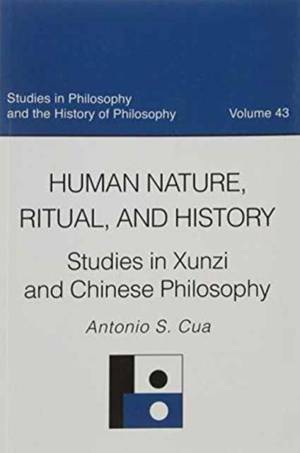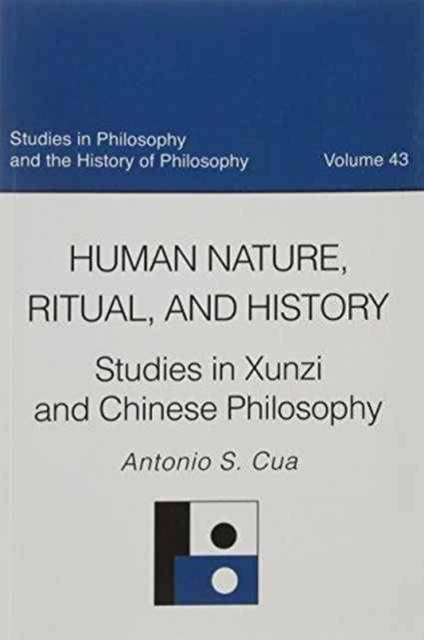
- Afhalen na 1 uur in een winkel met voorraad
- Gratis thuislevering in België vanaf € 30
- Ruim aanbod met 7 miljoen producten
- Afhalen na 1 uur in een winkel met voorraad
- Gratis thuislevering in België vanaf € 30
- Ruim aanbod met 7 miljoen producten
Omschrijving
In this volume, distinguished philosopher Antonio S. Cua offers a collection of original studies on Xunzi, a leading classical Confucian thinker, and on other aspects of Chinese philosophy. While each essay individually makes an important contribution to the study of Chinese philosophy, the book as a whole represents a major scholarly achievement. In the first part of the book, Cua focuses on Xunzi. Although the topic of human nature is a recurrent concern for Xunzi, recent studies have neglected to analyze the key notions and arguments that he offers. Cua shows that Xunzi deserves attention from moral philosophers, not only because of the clarity and depth of his thought, but also for the ways in which he focused on language and for his method of presenting theses dealing with the relation between morality and human nature; the significance of ritual for governance in a civilized community; the ethical uses of history; the possibility of ethical knowledge; and honor and shame. The second part of the book deals with key aspects of Chinese philosophy and the Confucian vision. Cua discusses the emergence of Chinese philosophy; the notion of practical causation presupposed in Confucian ethics; implications for the quality of human life in the context of environmental ethics; the problem of moral failure; and metaphysical grounding of Confucian ethics. Throughout the book, the methodology exemplifies a constructive interpretation and analysis of major concepts. Cua's work offers new opportunities for the study and development of Chinese philosophy.
Specificaties
Betrokkenen
- Auteur(s):
- Uitgeverij:
Inhoud
- Aantal bladzijden:
- 424
- Taal:
- Engels
- Reeks:
- Reeksnummer:
- nr. 43
Eigenschappen
- Productcode (EAN):
- 9780813227580
- Verschijningsdatum:
- 15/02/2005
- Uitvoering:
- Paperback
- Formaat:
- Trade paperback (VS)
- Afmetingen:
- 152 mm x 229 mm
- Gewicht:
- 612 g

Alleen bij Standaard Boekhandel
Beoordelingen
We publiceren alleen reviews die voldoen aan de voorwaarden voor reviews. Bekijk onze voorwaarden voor reviews.











